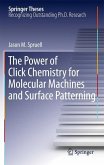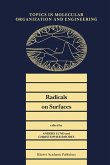In this book, the author determines that a surface is itself a new material for chemical reaction, and the reaction of the surface provides additional new materials on that surface. The revelation of that peculiarity is what makes this book different from an ordinary textbook, and this new point of view will help to provide a new impetus when graduate students and researchers consider their results.
The reaction of surface atoms provides additional new compounds, but these compounds cannot be detached from the surface. Some compounds are passive, but others work as catalysts. One superior feature of the surface is the dynamic cooperation of two or more different functional materials or sites on the same surface. This fact has been well established in the preferential oxidation of CO on platinum supported on a carbon nanotube with Ni-MgO at its terminal end. The Pt and Ni-MgO are perfectly separated, but these two are indispensable for the selective oxidation of CO in H2, where the H2O molecule plays a key role. The reader will understand that the complexity of catalysis is due to the complexity of the dynamic processes on the surface.
The reaction of surface atoms provides additional new compounds, but these compounds cannot be detached from the surface. Some compounds are passive, but others work as catalysts. One superior feature of the surface is the dynamic cooperation of two or more different functional materials or sites on the same surface. This fact has been well established in the preferential oxidation of CO on platinum supported on a carbon nanotube with Ni-MgO at its terminal end. The Pt and Ni-MgO are perfectly separated, but these two are indispensable for the selective oxidation of CO in H2, where the H2O molecule plays a key role. The reader will understand that the complexity of catalysis is due to the complexity of the dynamic processes on the surface.








